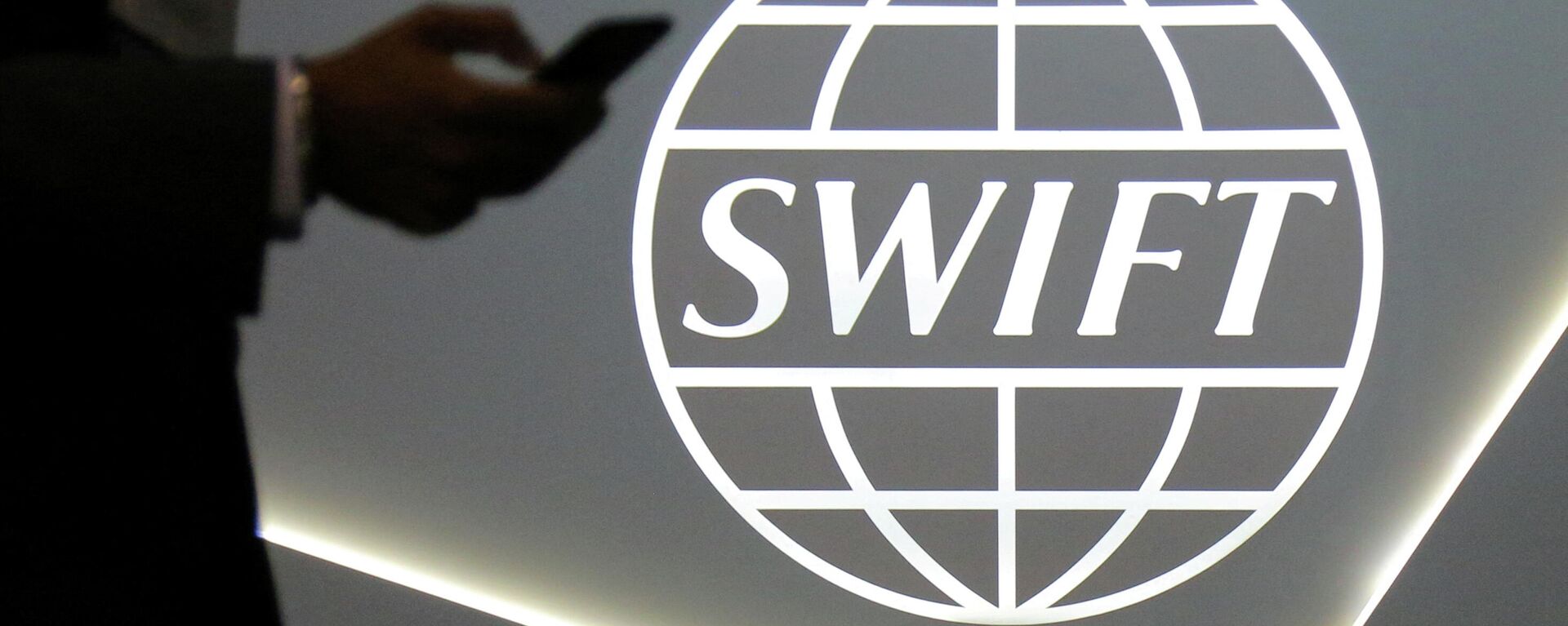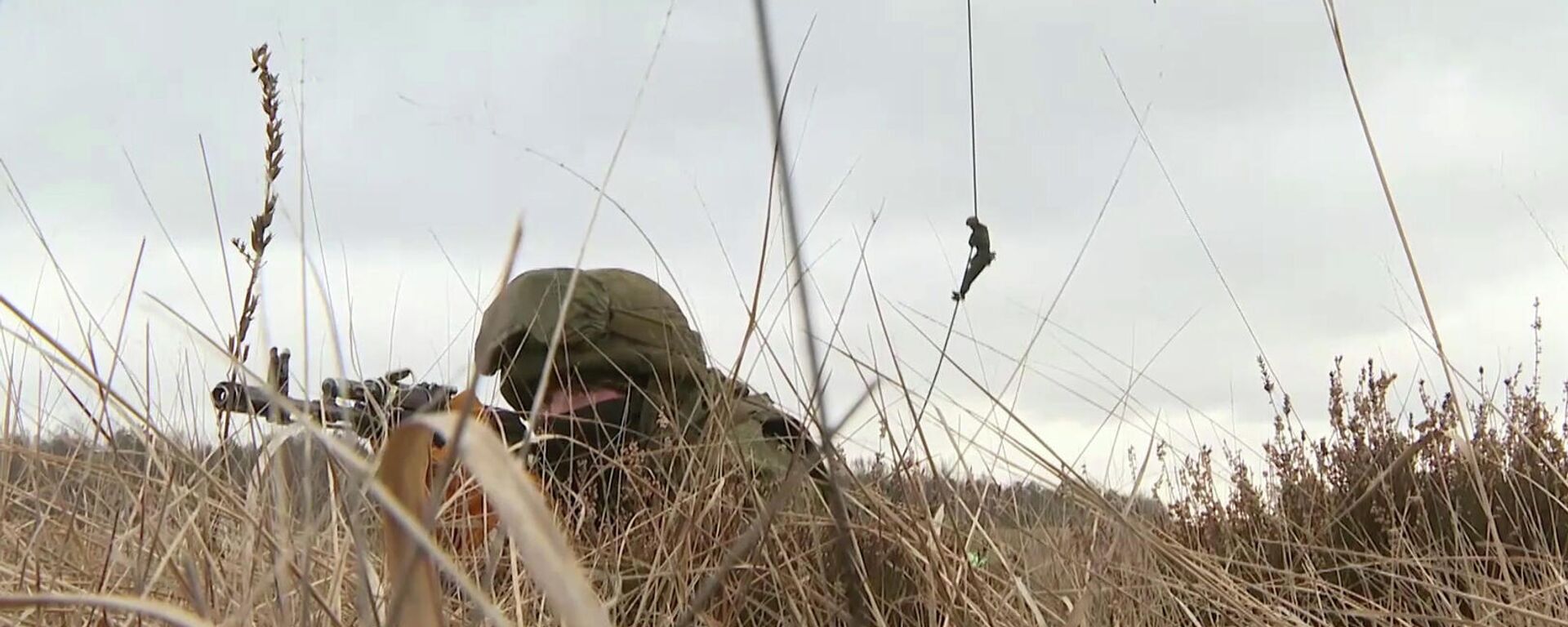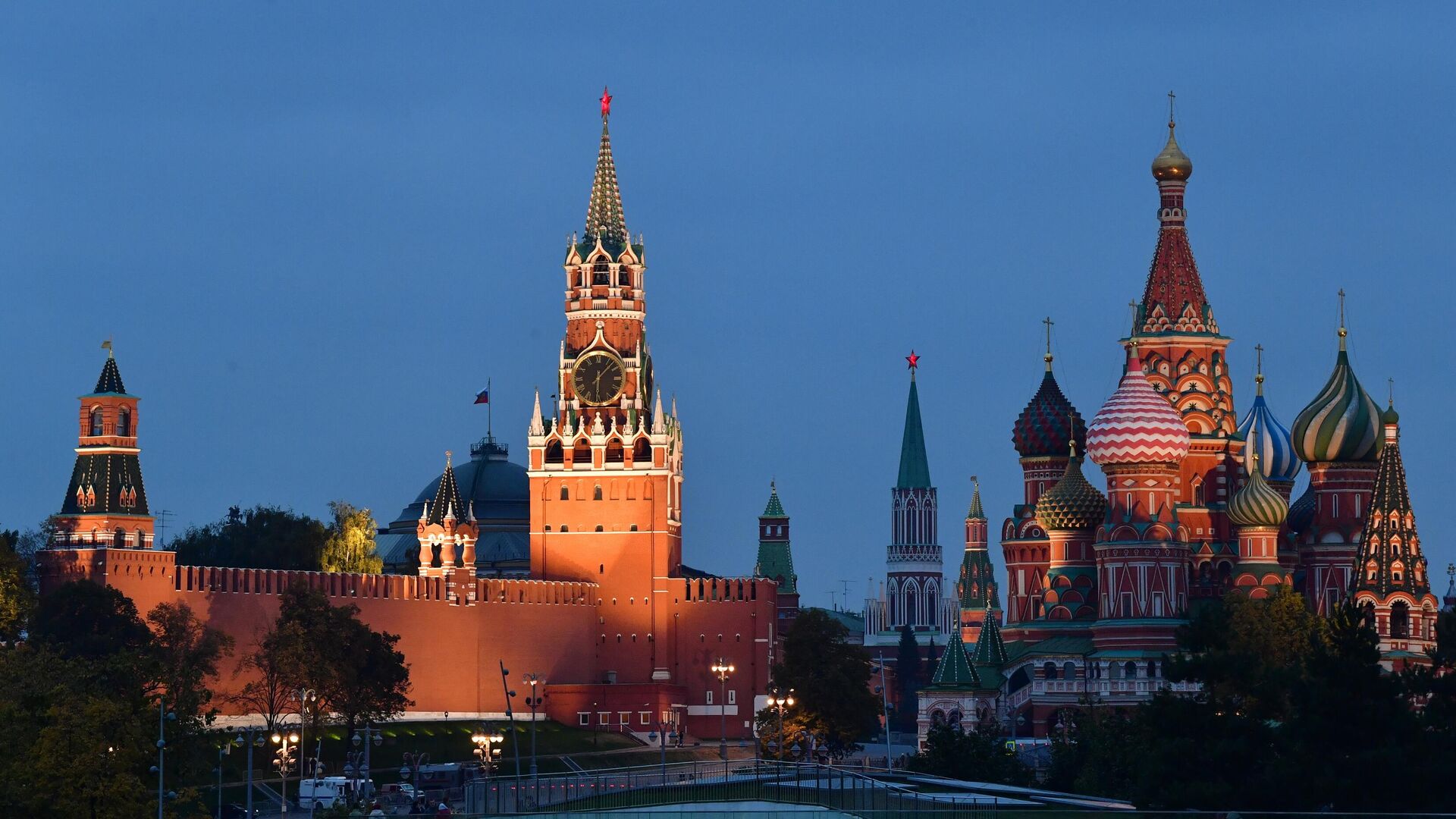https://sputnikglobe.com/20220227/russia-placed-its-reserves-in-countries-where-eu-cant-block-them-borrell-says-1093430361.html
Russia Placed Its Reserves in Countries Where EU Can't Block Them, Borrell Says
Russia Placed Its Reserves in Countries Where EU Can't Block Them, Borrell Says
Sputnik International
On Saturday, Western leaders agreed on an extensive new package of sanctions in connection with Russia's special military operation in Ukraine, including... 27.02.2022, Sputnik International
2022-02-27T22:50+0000
2022-02-27T22:50+0000
2023-04-12T17:15+0000
russia
ukraine
ukraine crisis
josep borrell
swift payment system
sanctions
european union (eu)
https://cdn1.img.sputnikglobe.com/img/07e6/02/05/1092769850_0:96:3303:1954_1920x0_80_0_0_231a9fbbc96e6a2f710ce101c123926b.jpg
EU Foreign Ministers intend to endorse as soon as Sunday a new package of sanctions against Russia, EU foreign policy chief Josep Borrell said at a press conference.First, he pointed out that EU foreign ministers have agreed to disconnect a number of Russian banks from SWIFT. However, Borrell did not name the number of Russian banks that will be disconnected, noting only that work on this issue continues as of Sunday evening.He then expressed hope that such measures will have a strong impact on the financial system of Russia.Borrell underscored that the bloc's member states agreed on implementing the decisions before Monday morning "when the central banks will restart working."Borrell admitted that the EU cannot block the Russian Central Bank's reserves placed in Moscow or China, for instance, and confessed that Russia in recent years has successfully placed reserves in countries that cannot be affected by the bloc's policy.The diplomat noted that Russia has been financially preparing for the current situation and future sanctions, moving its reserves away from the dollar and investing in euros and Chinese yuan.At the same time, Borrell noted that it is impossible to cut off the financial system of a whole country that is highly interconnected with others using "scissors."The EU's foreign policy chief explained that such actions cannot be done overnight. He went on by saying that the EU has learned a few points from the Iranian experience. The European leaders believe that they must keep the financial system working so that ordinary citizens can engage in certain activities, e.g. "send money to their relatives, and to pay some things that are certainly necessary to continue exchanging with Russia." However, he emphasized that the level of disconnection of Russian banks from the international financial flow has been "carefully" calibrated to create maximum damage to the Russian financial system, while maintaining a minimum level of interconnection with other financial systems.Russian Spec OpOn February 24, Russian President Vladimir Putin announced the start of a special military operation in Ukraine at the request of the Donetsk and Lugansk People's Republics, previously recognized by Russia. Moscow has stated that it has no plans to conquer Ukraine and that the operation's goal is to protect civilians from genocide and defend the DPR and LPR from Kiev's aggression.According to the Russian Defense Ministry, the military does not threaten Ukrainian cities or civilians, the target is Ukrainian military infrastructure, which is being disabled with high-precision weapons. In response, Western countries announced a new batch anti-Russian sanctions. In particular, several of the largest banks, including Sberbank and VTB, were subjected to harsh sanctions, such as being disconnected from SWIFT, and the restrictions were imposed to make it difficult for a number of state-owned companies to attract foreign capital. At the same time, no restrictions have been imposed on exports from Russia, including the energy sector, namely oil and gas. The reason behind this is that it could be hampered by the disconnection of certain Russian banks from SWIFT.However, a senior US administration official said earlier on Sunday that Western countries could keep Russian banks, through which payments for energy supplies are made, in SWIFT, in order to prevent a shortage of fuel on world markets and an increase in fuel prices.
https://sputnikglobe.com/20220227/how-russias-swift-ban-could-backfire-on-west--pave-way-for-alternative-payment-systems-1093424581.html
https://sputnikglobe.com/20220227/state-duma-speaker-spec-op-in-ukraine-only-way-to-stop-genocide-of-russian-people-prevent-massacre-1093430573.html
ukraine
Sputnik International
feedback@sputniknews.com
+74956456601
MIA „Rossiya Segodnya“
2022
News
en_EN
Sputnik International
feedback@sputniknews.com
+74956456601
MIA „Rossiya Segodnya“
Sputnik International
feedback@sputniknews.com
+74956456601
MIA „Rossiya Segodnya“
ukraine, ukraine crisis, josep borrell, swift payment system, sanctions, european union (eu)
ukraine, ukraine crisis, josep borrell, swift payment system, sanctions, european union (eu)
Russia Placed Its Reserves in Countries Where EU Can't Block Them, Borrell Says
22:50 GMT 27.02.2022 (Updated: 17:15 GMT 12.04.2023) Kirill Kurevlev
Managing Editor
On Saturday, Western leaders agreed on an extensive new package of sanctions in connection with Russia's special military operation in Ukraine, including disconnecting Russian banks already under sanctions from the SWIFT payment system, with the possibility of extending the measures to other Russian financial institutions.
EU Foreign Ministers intend to endorse as soon as Sunday a new package of sanctions against Russia, EU foreign policy chief Josep Borrell
said at a press conference."Today we will provide a political endorsement also of EU 27 member states to the overall package of measures that will pave the way for the swift adaption of necessary actions," he said.
First, he
pointed out that EU foreign ministers have agreed to disconnect a number of Russian banks from SWIFT. However, Borrell did not name the number of Russian banks that will be disconnected, noting only that work on this issue continues as of Sunday evening.
"About a half of the financial reserves of the Russian Central Bank will be frozen thanks to this measure," Borrell continued, explaining that more than half of the reserves are held in banks of the G7 countries.
He then expressed hope that such measures will have a strong impact on the financial system of Russia.
Borrell underscored that the bloc's member states agreed on implementing the decisions before Monday morning "when the central banks will restart working."
Interestingly, the bloc's top diplomat noted that in recent years, Russia has increasingly deployed its reserves in countries where the EU cannot block them.
Borrell admitted that the EU cannot block the Russian Central Bank's reserves placed in Moscow or China, for instance, and confessed that Russia in recent years has successfully placed reserves in countries that cannot be affected by the bloc's policy.
The diplomat noted that Russia has been financially preparing for the current situation and future sanctions, moving its reserves away from the dollar and investing in euros and Chinese yuan.

27 February 2022, 15:14 GMT
At the same time, Borrell noted that it is impossible to cut off the financial system of a whole country that is highly interconnected with others using "scissors."
The EU's foreign policy chief explained that such actions cannot be done overnight. He went on by saying that the EU has learned a few points from the Iranian experience. The European leaders believe that they must keep the financial system working so that ordinary citizens can engage in certain activities, e.g. "send money to their relatives, and to pay some things that are certainly necessary to continue exchanging with Russia."
However, he emphasized that the level of disconnection of Russian banks from the international financial flow has been "carefully" calibrated to create maximum damage to the Russian financial system, while maintaining a minimum level of interconnection with other financial systems.
On February 24, Russian President Vladimir Putin announced the start of a special military operation in Ukraine at the request of the Donetsk and Lugansk People's Republics, previously recognized by Russia. Moscow has stated that it has no plans to conquer Ukraine and that the operation's goal is to protect civilians from genocide and defend the DPR and LPR from Kiev's aggression.

27 February 2022, 22:19 GMT
According to the Russian Defense Ministry, the military does not threaten Ukrainian cities or civilians, the target is Ukrainian military infrastructure, which is being disabled with high-precision weapons.
In response, Western countries
announced a new batch anti-Russian sanctions. In particular, several of the largest banks, including Sberbank and VTB, were subjected to harsh sanctions, such as
being disconnected from SWIFT, and the restrictions were imposed to make it difficult for a number of state-owned companies to attract foreign capital.
At the same time, no restrictions have been imposed on exports from Russia, including the energy sector, namely oil and gas. The reason behind this is that it could be hampered by the disconnection of certain Russian banks from SWIFT.
However, a senior US administration official said earlier on Sunday that Western countries could keep Russian banks, through which payments for energy supplies are made, in SWIFT, in order to prevent a shortage of fuel on world markets and an increase in fuel prices.




